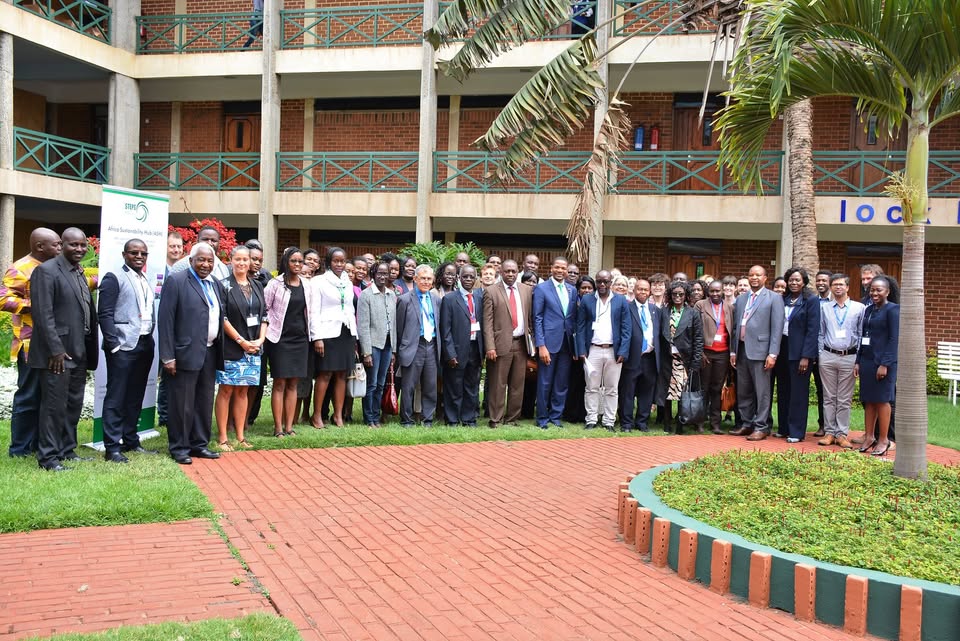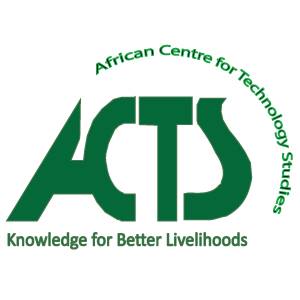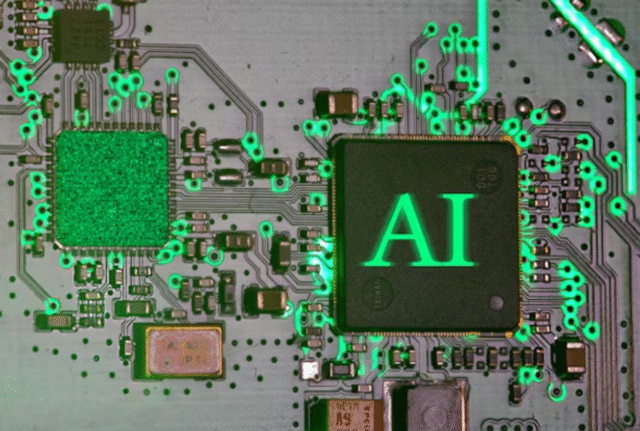In a landmark move for Africa’s tech landscape, the African Centre for Technology Studies (ACTS) has unveiled the Africa-Centred AI Institute (ACAII)—a groundbreaking hub designed to accelerate ethical, inclusive innovation tailored to the continent’s unique challenges and opportunities.
Unlike one-size-fits-all AI strategies developed elsewhere, ACAII anchors itself in Africa’s values, languages, and lived realities. It aims to deliver solutions that speak directly to the hearts and minds of the communities it serves—helping farmers weather climate shocks, rural clinics leapfrog healthcare gaps, and youth harness AI for meaningful employment.
Table of Contents

ACTS Is Building on Five Years of Purposeful Progress
ACTS isn’t entering uncharted territory. Over the past five years, the organisation has immersed itself in responsible AI, from applied projects to policy advocacy. ACTS now transitions that groundwork into a continent-wide mission, unified under ACAII’s five strategic pillars :
- Responsible AI Solutions
- AI Policy & Governance
- AI & Jobs
- AI Capacity Building
- Data Science
ACTS’s Executive Director, Prof. Tom Peter Migun Ogada, emphasised this evolution as a widening of their reach, scaling local impact across Africa. Meanwhile, Dr. Winston Ojenge, ACAII’s lead, is steering the creation of an “Africanized Responsible AI toolbox.” So far, the toolbox includes standards, ethics frameworks, and policies made in conversation with local stakeholders.
Strategic Pillars in Action: Tangible Impact Across Africa
ACAII isn’t just a hub—it’s a launchpad. It brings technical savvy and policy frameworks together for real-world impact:
1. Agriculture & Food Security
Smallholder farmers, representing over 60% of the continent’s agricultural labour force, stand to gain significantly. ACAII is launching AI systems that predict weather trends and optimise crop yields—empowering farmers with actionable alerts and forecasts, especially vital in rural zones where data and infrastructure often lag.
2. Healthcare for Underserved Communities
AI-powered telemedicine platforms and automated diagnostics are set to revolutionise primary care in remote areas. These tools help identify ailments early, circumvent physical distances, and mitigate staff shortages, prioritising communities that global health metrics often overlook.
3. Education & Digital Skills
Beyond technical solutions, ACAII places high emphasis on education. Its capacity-building initiatives aim at training educators, entrepreneurs, and policymakers. Curricula in AI ethics, data handling, and governance are being crafted, equipping Africa’s youth and leaders to chart and own their technological path.
4. Economic Growth & Job Creation
ACAII is adopting a dual strategy: analysing how AI transforms labour markets while empowering young innovators to build AI-driven ventures. With over 60% of Africa’s population under 25, such efforts could cultivate entirely new economic networks, offering alternatives to traditional job pathways.
5. AI Governance & Ethical Frameworks
True to its continental roots, the Institute is designing AI policies that reflect African values. Transparency, fairness, and accountability aren’t just buzzwords—they’re guiding principles. The aim is to create scalable tools that resonate culturally and protectively across diverse sociopolitical settings.

A Collaborative Vision: Ties with IDRC, EU, SIDA & More
ACAII’s launch is backed by a powerful alliance of international and regional partners. The AI for Development (AI4D) initiative—supported by IDRC, FCDO, and SIDA—has already seeded the groundwork through scholarships and community-driven projects.
Kathryn Toure of IDRC highlighted this momentum, noting how AI4D scholarships uplift underrepresented innovators, helping turn grassroots ideas into scaled AI solutions.
Meanwhile, the European Union reinforced its support through Horizon Europe’s Africa Initiative. Dr. Laurent Bochereau underscored the €100 billion EU fund, including a €500 million Africa Initiative III, with specific grants for Generative AI projects that address rural inclusion, women’s empowerment, and indigenous-language tech, designed with local startups and end-users from day one.
Voices From the Field: Infrastructure & Data Realities
ACAII’s leadership acknowledges the gaps. Ambassador Prof. Bitange Ndemo highlighted the need for local infrastructure and policy readiness to translate the AI promise into prosperity. Dr. Devotha Nyambo from Nelson Mandela Institute emphasised data fragmentation and urged investment in localised, disaggregated datasets that reflect real local context.
These voices underline a critical truth: impactful AI isn’t about flashy tech, but about bridging underlying structural challenges—data capture, processing power, systemic readiness, and inclusive participation.
What the Critics Are Saying
Reacting to the news on LinkedIn, Kenyan AI governance expert Gideon Abako praised ACTS’s policy credibility, calling ACAII “a meaningful step forward” but pressed that “execution and impact matter more than institutional launches.” Another noted,
“If ACTS can push for that [contextual, inclusive solutions], then serious AI adoption in Africa is possible”
Such commentary reveals a blend of optimism and realism—global eyes watch as ACAII shifts from frameworks to on-the-ground outcomes.
Charting the Road Ahead
ACAII’s virtual debut marked a beginning—now comes the marathon. Future priorities and timelines include:
- Pilot Projects: Launching in key regions for agriculture, healthcare, or education.
- Open‑Source Tools: Releasing the Responsible AI toolbox for free use and adaptation across the continent.
- Local Ecosystem Engagement: Building partnerships with regional hubs, startups, universities, and NGOs.
- Policy Harmonisation: Working alongside national governments to embed AI policies into regional governance.
- Continuous Investment: Securing funding beyond seed grants to ensure sustainability.

Why This Matters—Beyond the Headlines
- Rethinking AI for Africa
ACAII challenges the dominance of Western tech narratives. It positions Africa not just as an adopter, but as an innovator shaping AI frameworks that honour local knowledge systems. - Aligning with Sustainable Development
ACAII’s core sectors align closely with UN Sustainable Development Goals—from ending hunger to improving health, education, and gender equality. - Securing Digital Sovereignty
Africa risks digital dependency. ACAII builds resilient ecosystems—and ultimately, self-reliance—through education, local data control, and value-driven policies. - Creating Ethical Tech Pillars
With global distrust around AI, ACAII offers a model for communities to engage with and control tech advancement—bridging global innovation with regional accountability.
The Takeaway
The Africa-Centred AI Institute isn’t just another think tank—it’s a bold experiment in continent-led technological transformation. By placing Africans at the helm of AI design, policy, and deployment, ACAII merges global know-how with local wisdom. The journey ahead is long and filled with infrastructure and governance hurdles, but the vision is clear: AI crafted by Africa, for Africa, with Africa.
Join our WhatsApp community
Join Our Social Media Channels:
WhatsApp: NaijaEyes
Facebook: NaijaEyes
Twitter: NaijaEyes
Instagram: NaijaEyes
TikTok: NaijaEyes





